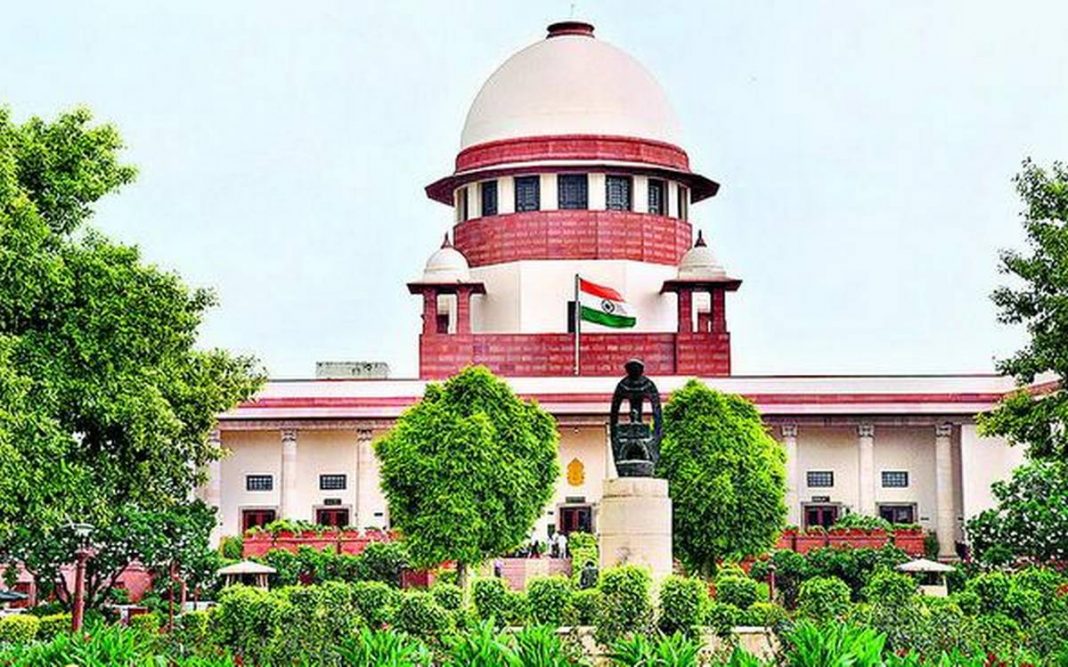A Public Interest Litigation has been filed in the Supreme Court seeking direction to the Election Commission to ensure that every political party publishes the details regarding each candidate along with reason for their selection on the Home Page of its official website in bold letters.
The PIL, filed by Ashwini Kumar Upadhyay through Advocate Ashwini Kumar Dubey, also sought direction to EC to ensure that every political party publishes criminal cases regarding its nominees within 48 hours in electronic, print and social media and file a contempt case against the President and to de-register the political party, which violates the directions of the Supreme Court’s judgments in Public Interest Foundation’s case and Rambabu Singh Thakur’s case.
According to the PIL, Samajwadi Party, which is a registered & recognised political party, fielded gangster Nahid Hasan from Kairana, Uttar Pradesh but neither published his criminal records in electronic, print and social media, nor the reason for his selection within 48 hours.
Hasan is currently in custody and the first candidate to file nomination in the first phase of Uttar Pradesh Assembly Elections. On February 13, 2021, Shamli Police imposed the Gangster Act on the two-time MLA from Kairana.
He has multiple criminal cases and is allegedly the mastermind behind the Hindu exodus from Kairana. Hasan has many criminal cases registered against him, including fraud and extortion and he was declared a fugitive by the Special MLA-MP Court, the petition mentions.
The PIL alleged that the injury caused to the citizens was extremely large because even recognized political parties are giving tickets to dreaded criminals. Therefore, voters would find it difficult to cast their vote freely and fairly, though it’s a fundamental right under Article 19.
The plea said the consequences of permitting criminals to contest and become legislators were extremely serious for democracy and secularism, as:
(i) During the electoral process itself, not only do they deploy enormous amounts of illegal money to interfere with the outcome, but also intimidate voters/rival candidates.
(ii) Thereafter, in our weak rule-of-law, once they gain entry to the governance as legislators, they interfere with, and influence, the functioning of government machinery in favour of themselves and their organization by corrupting government officers and, where that does not work, by using their contacts with Ministers to make threats of transfer and initiation of disciplinary proceedings. Some become Ministers, which makes the situation worse.
(iii) Legislators with criminal antecedents attempt to subvert the administration of justice and attempt by hook or crook to prevent cases against themselves from being concluded and, where possible, to obtain acquittals. Long delay in disposal of cases and low conviction rates is testimony to their influence.
A Legislator is a Lawmaker, as well as a superior public servant. When a person against whom charges have been framed even in normal cases, cannot become a IAS or Judge, then allowing such person to become MLA, MP and Minister, who is supposed to discharge larger public and constitutional duties faithfully, is arbitrary, irrational unreasonable and violative of Article 14 of the Constitution,” the order read.
In Rambabu Singh Thakur’s case, taking note of “alarming” rise of criminalisation of politics, the Supreme Court had directed all political parties to publish the details of criminal antecedents of their candidates in the Lok Sabha and Assembly polls within 48 hours of selection of the candidate or within two weeks of nomination, whichever is earlier.
In the Public Interest Foundation and ors vs Union of India judgment, the Supreme Court has ruled that it is the responsibility of Parliament to frame a law to prevent criminalization of politics.


